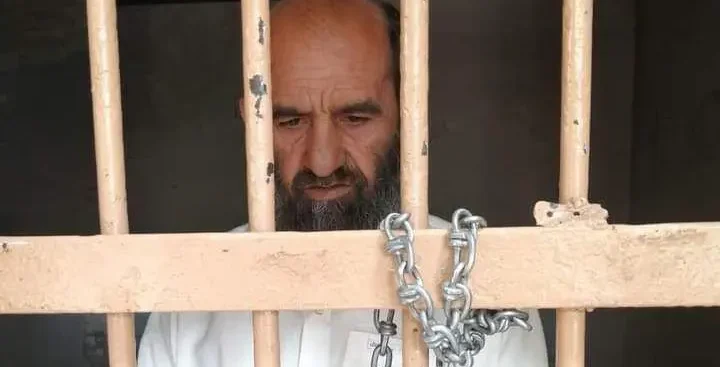In a heart-wrenching turn of events, a man accused of blasphemy, Abdul Ali, was shot and killed while in police custody. The tragedy unfolded after a video went viral on social media, leading to his detention by Kharotabad Police Station under the blasphemy law, Section 295C of the Pakistan Penal Code.
As the video spread like wildfire, a furious mob gathered outside the police station, their chants demanding the handover of the accused. Fearing for their security, the police had no choice but to transfer Abdul Ali to the Kent Police Station for his protection. But safety was not found there. In a moment that has shaken the nation, a police officer pulled the trigger, ending Abdul Ali’s life within the station’s walls.
The officer responsible for the fatal shot has been arrested, and investigations are ongoing. Even in death, Abdul Ali’s journey remained fraught with fear, as his body was not transferred to the hospital. Instead, a police surgeon was called to a secure location to conduct the post-mortem, far from the eyes of the public.
This devastating incident is not an isolated one. It mirrors a disturbing trend where mobs have taken the law into their own hands, acting on mere accusations of blasphemy. Just a few months ago, another man from Sialkot was dragged from police custody and killed by an enraged crowd in Swat’s Madin area.
The senseless loss of life leaves a haunting reminder: in Pakistan, justice is too often overshadowed by fear, and once again, life has been taken before it could be fairly judged.
The alleged video that sparked the blasphemy charge against Abdul Ali, recorded in the confined space of a moving car, now hangs like a shadow over his tragic fate. Yet, the content of that video, which stirred such fury, remains unverified. What we do know is that amid an ordinary conversation, Abdul Ali, driving the car himself, expressed frustration over the arrest of a Tehreek-e-Insaf leader. In a passionate response, he urged people to rise against government officials, questioning the direction in which they were steering the country.
According to the FIR, it was during this heated moment that Abdul Ali allegedly uttered religiously “indecent” words. These few words, spoken in the throes of anger, set off a storm that spiraled beyond control.
By Wednesday, the video had gone viral, and with it, a dangerous fire ignited in the hearts of many. Crowds swarmed the Western Bypass near Jabal Noorul Quran in Quetta, burning tires and blocking roads. Their anger was fierce, their demands clear—justice for what they perceived as a grave offense. But even after the arrest of Abdul Ali, the mob’s thirst for vengeance was far from quenched.
As night fell, the scene outside Kharotabad police station turned volatile. Stones rained down on the station as protesters, fueled by rage, tried to break through the gates. Their cries echoed through the air, demanding that Abdul Ali be handed over to them. Fear rippled through the officers inside as they fought back with tear gas, desperate to regain control. But the mob was relentless, surrounding the station and hurling stones deep into the night.
Amid this chaos, Abdul Ali was quietly transferred to the Kent police station in a desperate bid to save his life. Yet, the flames of fury that had been ignited by that single video could not be easily extinguished. What began as an ordinary conversation in a moving car had exploded into a tragedy, one that would end in a senseless loss of life, leaving behind only heartbreak and unanswered questions.
